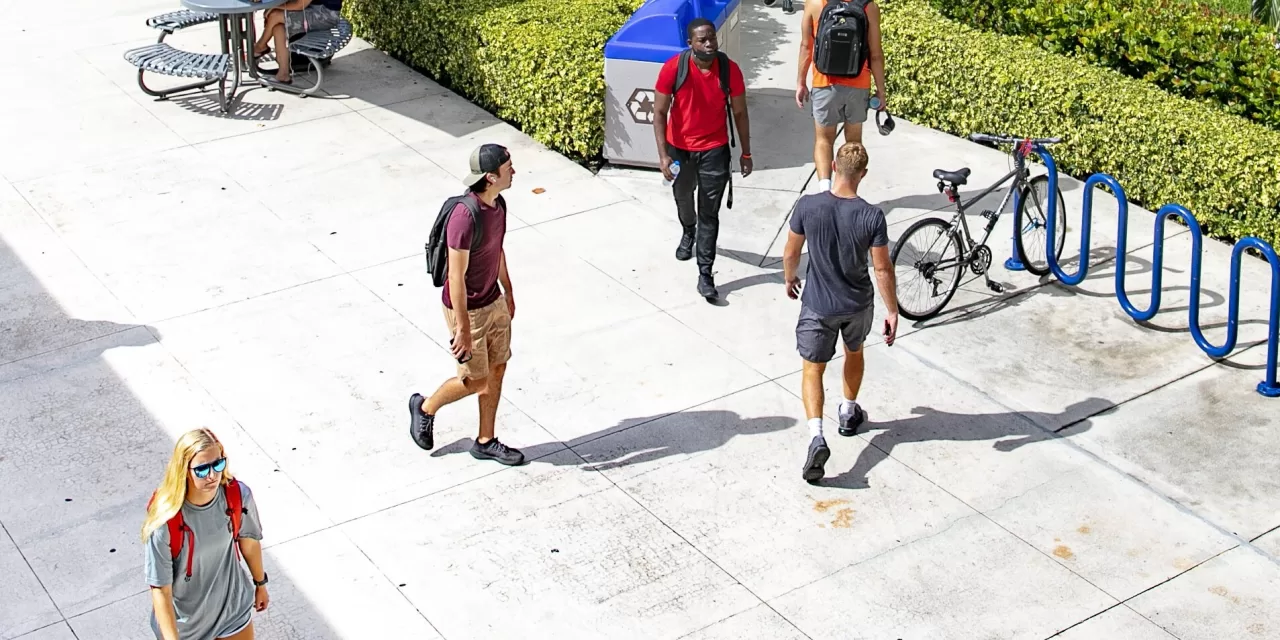Florida Atlantic University Research Unveils Concerning Trend Among College Commuters
A recent study conducted by Florida Atlantic University (FAU) sheds light on a critical issue: the connection between commuter college students’ mental health and their likelihood of being involved in a vehicle crash. The study, published in the Journal of Transport & Health, underscores how mental health challenges, such as depression and anxiety, may contribute to an increased risk of vehicle crashes among students who commute to campus.
Young adults, particularly those who are new to driving, are already at a higher risk for traffic accidents due to inexperience, impulsive driving behavior, and driving under the influence. However, few studies have explored the intersection of mental health and crash risk. This research aims to fill that gap by examining commuter students—a group facing unique challenges such as limited public transit options in South Florida, greater familial responsibilities, and financial struggles.
In a 2022 randomized controlled trial, researchers gathered baseline data from a group of college students to study interventions designed to change commuter behavior. The data revealed a concerning trend: a high percentage of students reported mental health difficulties, as well as a significant number who self-reported crashes.
The study, which involved 289 participants between the ages of 16 and 63, found that on average, students experienced 9.9 days per month of poor mental health, 8.7 days of depression, 12 days of anxiety, and 12.7 days of insomnia. Additionally, more than 7 days per month were spent with limited activity due to health issues.
Key findings also highlighted that:
- Commuter students who cared for an adult were more likely to be involved in a crash.
- Students with a higher GPA had a lower likelihood of being in a crash (with the crash group averaging a GPA of 2.82 compared to 3.29 for non-crash participants).
- There was a significant correlation between socioeconomic disadvantage (such as Pell Grant and first-generation student status) and an increased risk of crashes.
- Hispanic students and students from lower socioeconomic backgrounds were more likely to report crashes.
While age and gender didn’t significantly affect crash likelihood, the study found that older students were slightly less likely to be involved in a crash.
Dr. Louis A. Merlin, senior author and associate professor at FAU’s Department of Urban and Regional Planning, explained the potential link: “Our data suggest correlation, not causation. It’s possible that students with poor mental health may be more distracted while driving, which increases their crash risk. However, it is equally possible that being in a crash could worsen mental health.”
The researchers hypothesize that mental health conditions such as anxiety and depression may divert students’ attention away from the road, impairing their ability to focus on driving. The mental strain of managing academic stress and personal issues might distract them from the critical task of vehicle operation.
The study emphasizes the need for colleges to consider the broader implications of commuter students’ mental health. In areas with limited transit options, such as South Florida, commuter students are often forced to drive, putting them at greater risk for accidents. The researchers suggest that offering alternative transportation options—such as better public transit—could reduce these risks while also reducing students’ financial burden.
“Vehicle crashes are particularly devastating for commuter students, as they carry not only health risks but also significant financial consequences,” said Dr. Merlin. “Addressing the mental health challenges students face and improving their access to safe transportation options could go a long way in reducing these risks.”
This study also highlights the importance of accessible mental health care on college campuses. With the rising mental health challenges among students in the post-social media era, providing comprehensive support for students’ mental well-being could potentially decrease the likelihood of vehicle crashes and improve overall student success.
Disclaimer: The information presented in this article is based on the research findings published by Florida Atlantic University. The study suggests a correlation between mental health issues and an increased likelihood of vehicle crashes among commuter students, but does not establish causation. Further research is needed to better understand the complex relationship between mental health and driving behavior.











